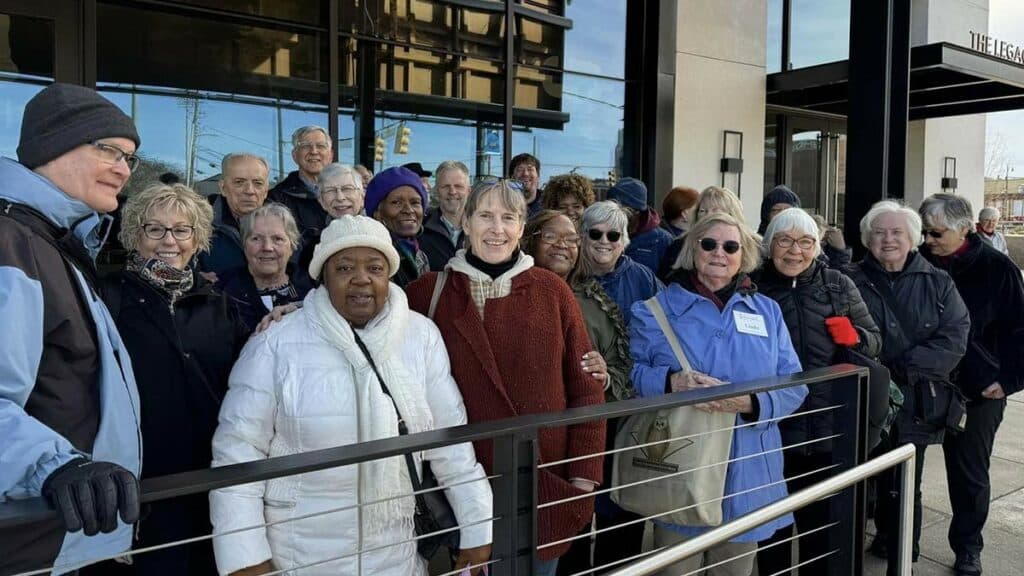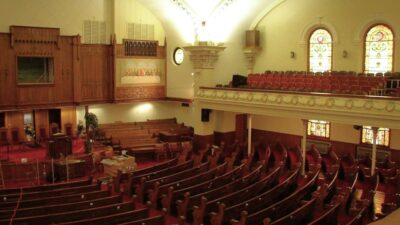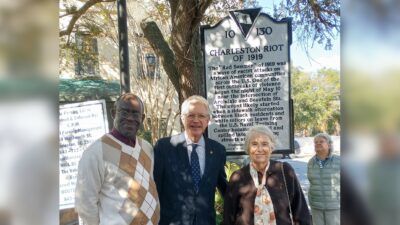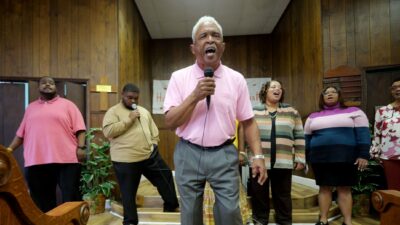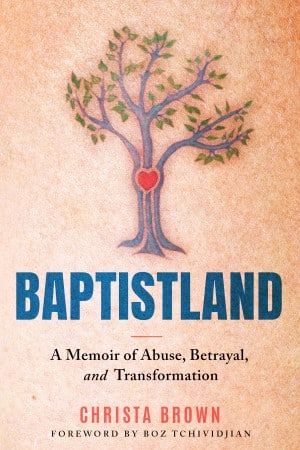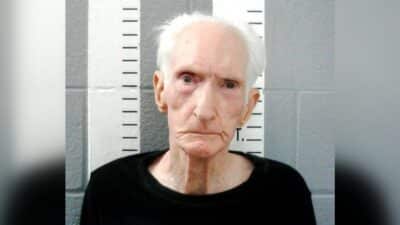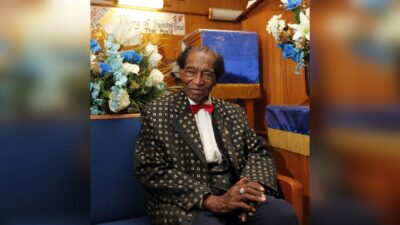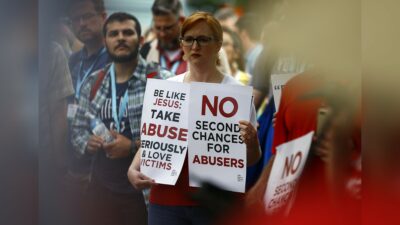The Episcopal Diocese of Michigan conducted a civil rights pilgrimage to Alabama Feb. 16-19 that brought a diverse group of church members and others to four key sites, including the 16th Street Baptist Church in Birmingham and the Legacy Museum in Montgomery.
The trip was part of the diocese’s work to build greater racial understanding among its 76 worshipping communities and more than 14,000 baptized members.
“This is a foundation for a movement of how we embody Christ’s great commandment of love your neighbor as yourself,” said Bishop Bonnie A. Perry, adding, “I think we can be a model for how we have grace-filled, uncomfortable conversations.”
The trip began with the Birmingham Civil Rights Institute and 16th Street Baptist Church, the site of a 1963 bombing that killed four girls and injured more than a dozen others. The group then traveled to Montgomery for visits to the Legacy Museum and National Memorial for Peace and Justice, both part of the Equal Justice Initiative.
The pilgrimage meant something different for each of the 44 people on the sobering journey.
Your tax-deductible gift helps our journalists report the truth and hold Christian leaders and organizations accountable. Give a gift of $30 or more to The Roys Report this month, and you will receive a copy of “Baptistland: A Memoir of Abuse, Betrayal, and Transformation” by Christa Brown. To donate, click here.
For the Rev. Dean Aponte-Safe, who was raised on a dairy farm in small-town Minnesota, the trip was a first step toward understanding police brutality and racial bias. The two issues became unforgettable after the murder of George Floyd just a few hours from where Aponte-Safe served as pastor for two small, rural churches.
“I have an opportunity to see parts of our history in ways that I’ve only read about,” said Aponte-Safe, who is now interim pastor of The Episcopal Church of the Incarnation in Ann Arbor. “It’s a continuing process of learning — and re-learning.”
For Juanita Woods, the trip meant returning to her roots in Jackson, Mississippi, the city she left in 1955 at age 9 when her family moved north. “When they do some of the Black History Month programs, I can’t watch them, because I lived them,” said Woods, a member of All Saints Episcopal Church in Detroit. “I drank from a separate fountain. I walked past the white school.”
From its opening depiction of a harrowing ocean voyage, to lynching as a tool of terror and the modern reality of mass incarceration, a tour of the Legacy Museum is a wrenching and powerful framing of history from the perspective of those brought to the U.S. against their will. “Slavery in America did not end. It evolved,” says a sign in the museum, which opened in 2018.
Pondering the day that awaited her at the Legacy Museum, Woods was introspective. “Part of me is saying it’s going to be hard to relive — to see that. The other part is, I want to see how much it will impact my thinking,” she said.
The trip was put together by the Rev. Sister Veronica Dunbar. She heads the Spirituality and Race Mission the diocese launched in January 2022 to break down the barriers of race, geography and class and promote healing through a spiritual lens. Dunbar felt the pilgrimage was an important undertaking now because of increasing hostility and “resurgence of rhetoric denying the dignity and histories of people of color and indigenous people.”
Dunbar sees the pilgrimage as part of the spiritual journey of healing. “You cannot heal wounds that you have not named,” she said. “If we do not face squarely the harms done and the harms endured, we will not be whole as human beings, or as the body of Christ. A pilgrimage such as this is just one way that we recognize and name those hurts that keep the body from being whole and a source of healing in the world.”
At the end of the third day, trip members received the Eucharist with Dunbar and Perry at St. John’s Episcopal Church in Montgomery. As people sat with eyes closed in the late-afternoon quiet of a small chapel, Dunbar asked if anyone wanted to express what they were feeling.
After a few moments, the responses started to come forth.
“Heartbroken.”
“Lord, have mercy.”
“How long, Lord?”
“Hopelessness is the enemy of justice.”
Todd Nissen is a contributor to Episcopal News Service.




